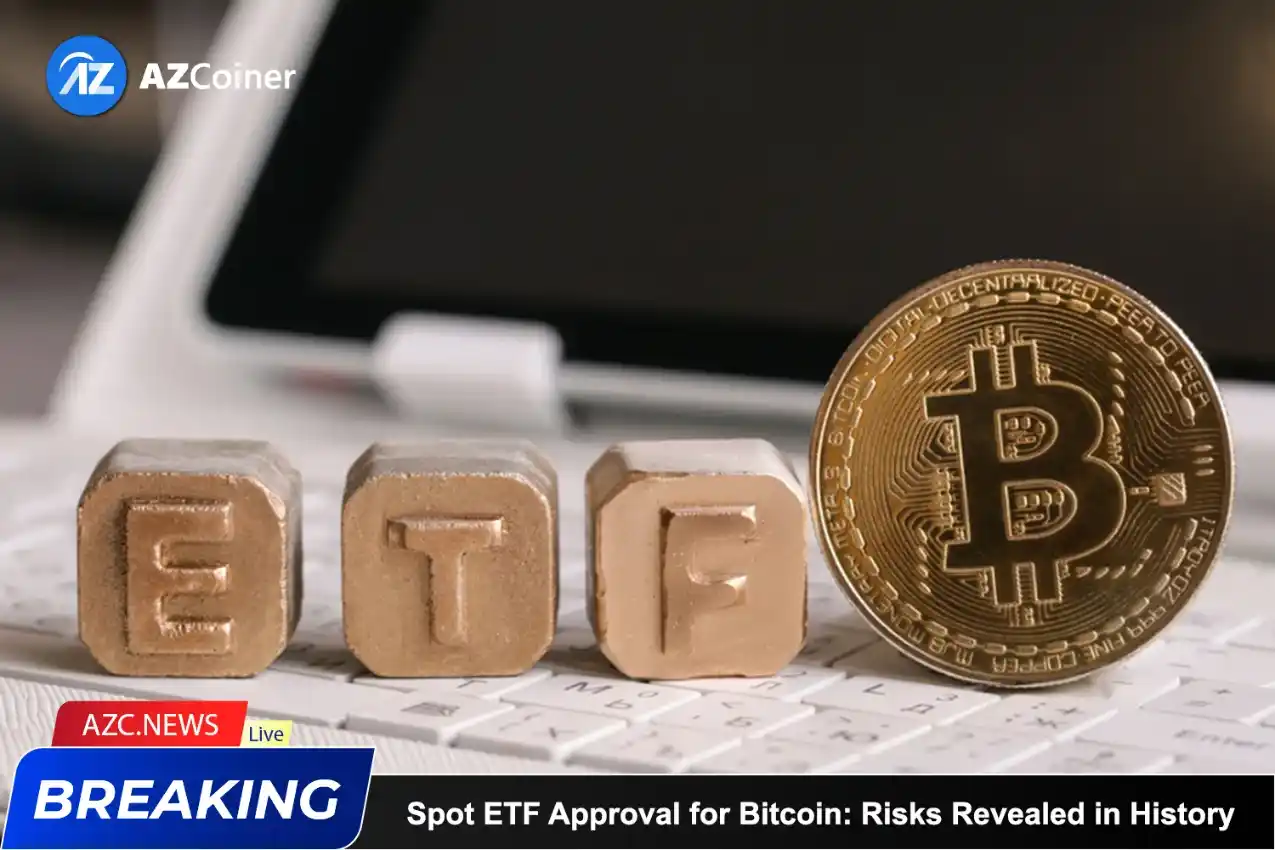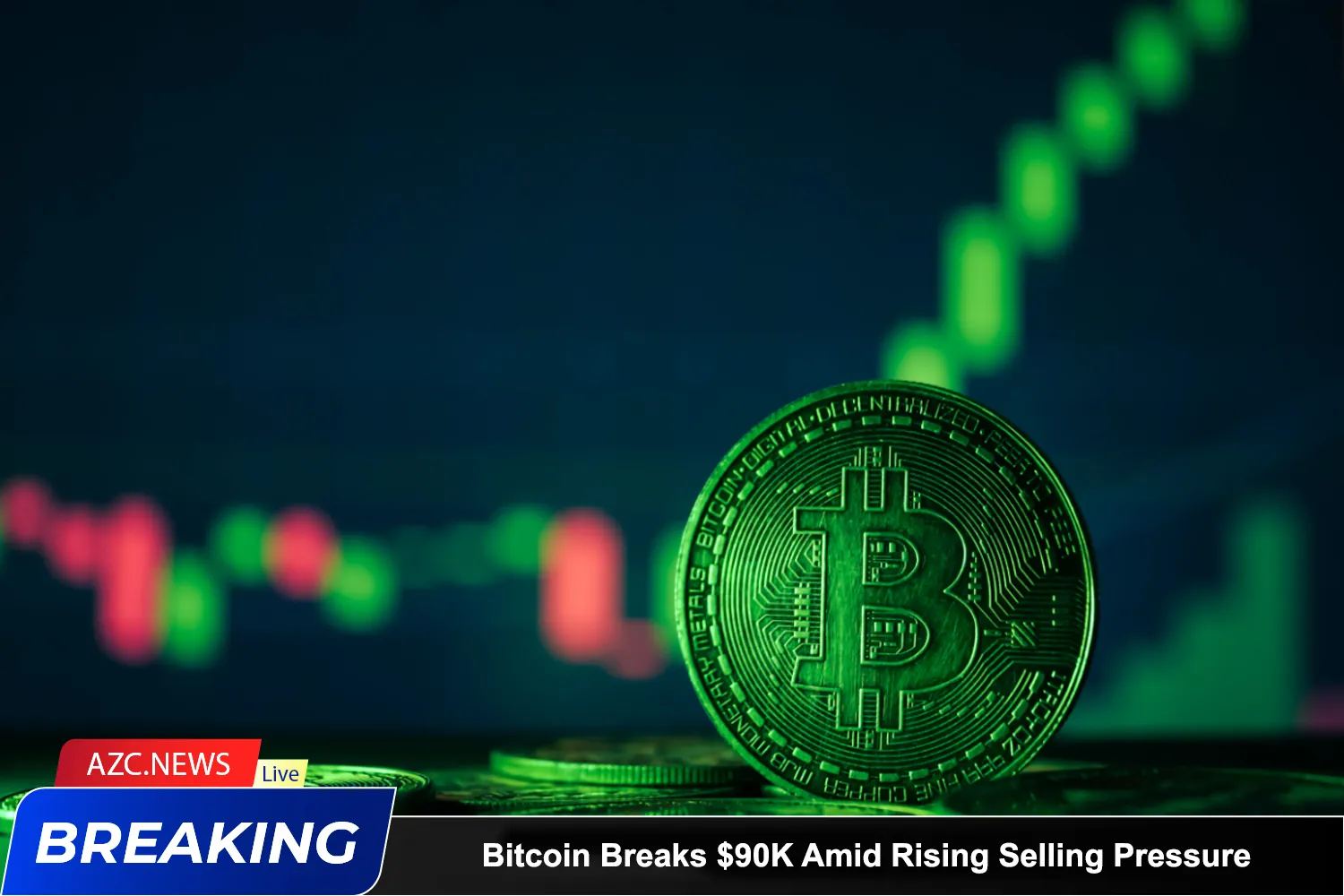On January 3rd, Bitcoin (BTC), the leading cryptocurrency by market capitalization, experienced a sharp 10% decline during intraday trading. The drop followed the release of a report by Matrixport, a crypto investment services provider.
The report, authored by analyst Markus Thielen, suggested that the U.S. Securities and Exchange Commission (SEC) might reject all pending applications for a spot Bitcoin exchange-traded fund (ETF) in the coming month. Despite ongoing meetings between applicants and the regulator, as well as updated S-1 prospectuses, Thielen pointed out a critical requirement that, in his view, remained unmet for SEC approval.
Citing the current political climate and the SEC’s cautious stance on crypto, Thielen emphasized that the proposed ETFs fell short of meeting necessary criteria. He noted that SEC Chair Gary Gensler’s December 2023 comments indicated a belief in the industry requiring more stringent compliance, making the approval of a Bitcoin Spot ETF unlikely from a political perspective.
Thielen’s report triggered a significant double-digit decline in BTC’s value and led to the liquidation of $500 million worth of positions across derivatives exchanges within a single day.
Surprisingly, this optimism unfolded in the wake of numerous December 2023 predictions anticipating the SEC’s probable approval by January 10th. In a prior post on X (formerly Twitter), Eric Balchunas, a senior ETF analyst at Bloomberg, expressed a 90% likelihood of the SEC granting its first spot ETF approval by that date.
Another Bloomberg analyst, James Seyffart, pointed to BlackRock’s amended Form S-1, suggesting it could prompt the SEC to approve BlackRock’s ETF application early in January. These forecasts created a positive buzz in the BTC market, sustaining the cryptocurrency’s price at an 18-month high throughout December.
CoinGecko’s data reveals that during those 31 days, BTC experienced double-digit growth, concluding the trading year above the $42,000 mark.
The approval of the Bitcoin Spot ETF is nearing completion
The potential hedge against risks offered by BTC spot ETFs seems to be in question. These investment vehicles allow investors to participate in Bitcoin’s price movements without directly owning the cryptocurrency. The process involves ETF issuers creating shares representing ownership in the underlying BTC, which are then traded on designated exchanges.
While BTC spot ETFs have been promoted as a means for investors to mitigate risks associated with holding the coin itself, recent events have cast doubt on this narrative. The cryptocurrency’s reaction to news about the potential approval of such investment vehicles has consistently challenged the perception of BTC spot ETFs as effective hedges.
This ongoing trend highlights the SEC’s concerns about the inherent volatility of the BTC market and the potential adverse effects of legitimizing cryptocurrencies through ETF approvals. The race to launch the first spot-traded BTC ETF began in 2013 with the Winklevoss Bitcoin Trust application, which the SEC rejected in 2017. The rejection caused a rapid 15% drop in Bitcoin’s price.
In March 2021, Cboe BZX Exchange Inc. sought approval for the VanEck Bitcoin Trust, facing delays before the SEC ultimately rejected the rule-change application. The SEC cited the applicant’s failure to demonstrate effective safeguards against “fraudulent and manipulative acts and practices” as the reason for the rejection.
According to Bloomberg, Bitcoin faced further losses after the SEC’s rejection but managed to recover some ground during mid-afternoon trading. By March 2023, the SEC had turned down all three proposals related to listing and trading shares of the VanEck Bitcoin Trust.
Notably, BTC’s price surged following a decision from the three-judge panel of the DC Circuit Court of Appeals in the Grayscale Investments case against the SEC. In October 2021, Grayscale sought SEC approval to convert Grayscale Bitcoin Trust (GBTC) into a BTC spot ETF. The initial rejection, citing non-compliance with anti-fraud and investor protection standards, led to Grayscale’s appeal. Grayscale argued that the SEC’s denial was arbitrary, emphasizing its approval of “materially similar” Bitcoin futures ETFs.
Related: Bitcoin Surpasses Ethereum in Latest NFT Sales
By December 2022, the SEC defended its decision, pointing out that approved ETFs were based on futures contracts traded on the Chicago Mercantile Exchange (CME), differing from Grayscale’s spot ETF application. Grayscale contested this treatment as unjust and discriminatory. In a decision on August 29, 2023, the Court of Appeals sided with Grayscale, urging the SEC to review its decision.
Post the court’s decision, BTC’s value surged by 6% within 24 hours, indicating improved sentiment and heightened trading activity. This sequence of BTC price fluctuations since 2017 underscores the inherent risks of a spot BTC ETF, particularly concerning the volatility in the cryptocurrency’s price. The close connection between the ETF shares and the underlying asset means that fluctuations in BTC’s price can lead to corresponding changes in the value of the ETF shares.










